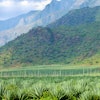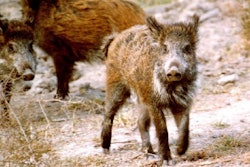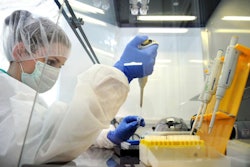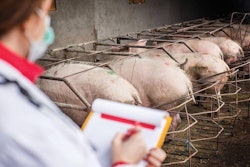
Despite reports of some new cases of African swine fever , several regions of the Philippines are pushing ahead with the national disease recovery plan, and another outbreak of classical swine fever has occurred on a commercial farm in Japan.
In the Philippines, the Board of Investment has approved a significant expansion at a pig farm in Central Luzon.
The aim of the PHP61.8 billion (US$1.2 billion) investment is to help stabilize the country’s pork market, reports the Philippine News Agency (PNA). Next to the existing premises of Zashi Hog Farm Inc. in Pampanga province, additional gestation and farrowing capacity will be built. Production is estimated at around 11,800 9-kg piglets.
According to the latest Department of Agriculture (DA) data cited by PNA, African swine fever (ASF) was still present in 13 regions, 51 provinces, and 3,626 communities in the Philippines at the end of January. As a result of the disease-related losses, the country has a pork deficit of 120,000 metric tons this year.
Among those areas where ASF has been detected recently is Misamis Oriental in Northern Mindanao, reports PNA. After a period of 100 days without new cases, pigs have tested positive for the ASF virus in three communities in the city of Gingoog. Despite this development, swine repopulation is set to continue, alongside enhanced disease surveillance.
Recovery proceeds in ASF-free regions
Meanwhile, some districts in the Eastern Visayas and Bicol regions continue to be disease free after previous ASF outbreaks.
According to PNA, the DA has turned over PHP11.8 million to five provinces in Eastern Visayas to kickstart swine repopulation. Funding came from the Integrated National Swine Production Initiatives for Recovery and Expansion (INSPIRE) program.
The same source reports that former pig owners in Legazpi city are the first in the Bicol region to start restocking their herds. The first 40 owners are set to receive two hybrid piglets each. After a few months, the gilts will be artificially inseminated to ensure the continuation of a high-performing genetic line. All recipients of the new stock must be registered with the country’s insurance corporation scheme to cover any future ASF-related losses.
Four new ASF outbreaks in Thailand
With the latest official disease report, Thailand’s total confirmed ASF outbreak total has reached 63. More than 1,943 pigs have been directly affected, according to the World Organisation for Animal Health (OIE).
In the period March 5-10, four further outbreaks were registered. All were in village herds in different provinces in northern and southern Thailand. Among them were the first cases in the southern province of Trang.
A drop in production as a result of ASF outbreaks and resulting high prices for pork were blamed for rising inflation in Thailand back in January, according to a recent article in Bangkok Post.
Further outbreaks in northeastern India
Hundreds more pigs have died in the state of Mizoram, reported East Mojo last week.
While few details are reported, mortalities have been noted in the town of Champhai, as well as a village on the border with Manipur state where more than 100 pigs have died since February. At least one of these has tested positive for the ASF virus.
Latest outbreaks follow a three-month ASF hiatus in Mizoram, Last year, deaths of more than 33,000 pigs were attributed to the disease.
Update on ASF cases among South Korea wild boar
Since the end of August 2021, the nation’s veterinary authority has registered with the OIE 827 cases of ASF among its wild population.
According to the latest official report covering the period February 28 to March 20, infected wild boar were found in four provinces. These were the northern border provinces of Gangwon and Gyeonggi, and those just to the south — North Chungcheong and North Gyeongsang.
Between the country’s first detected cases of ASF in September 2019 and early October 2021, South Korea notified the OIE of 1,589 cases of ASF in wild boar. In addition, domestic pigs at 21 farms in South Korea have tested positive for ASF.
ASF developments elsewhere in Asia
In the Lao People’s Democratic Republic (Laos), a few pig samples tested positive for the ASF virus this year. This is according to an update from the United Nations’ Food and Agriculture Organization (FAO). Positive samples were obtained from pigs in the southeastern province of Xekong — which borders Vietnam — and Xaysomboun in northern-central Laos. Almost 500 other samples taken at the time showed no signs of ASF.
The same source reports that in 2021, around 289,000 pigs were lost to ASF in Vietnam. Cases occurred in more than 3,100 communities in 60 of the country’s 63 provinces/city municipalities.
To maintain Cambodia’s ASF-free status, the national pig farming organization has called for more disease controls at its borders. Ahead of the New Year celebrations, unscrupulous traders are thought to be raising this cross-border trade, reports Khmer Times.
Imports amount to 3,000-4,000 pigs per day to meet Cambodia’s national demand of around 8,000 animals. According to the agriculture ministry, it is taking measures to boost domestic production and reduce reliance on imports.
ASF situation eases in Hong Kong, Malaysia
In Hong Kong, no new cases of ASF have been detected for one month. According to OIE notifications, a total of nine infected wild boar were found at two locations in the territory during January and February. No infections in domestic pigs have between reported.
From the end of March, a pig slaughterhouse and pork market stalls in part of Malaysia will be permitted to reopen, reports The Borneo Post. Sibu is one of four divisions in the Eastern Malaysian state of Sarawak affected by previous ASF outbreaks. For a period of 60 days, these facilities have been closed to break the infection cycle and allow thorough cleaning.
This month, Purdue University in the U.S. received funding to develop a rapid paper test kit to detect the ASF virus.
View our continuing coverage of the global African swine fever situation.
Japan reports CSF outbreak on farm
Last week, the agriculture ministry confirmed a new outbreak of classical swine fever (CSF) on a pig farm. Affected was a farm with around 1,200 pigs in the Nakagawa town area of Tochigi. This prefecture is in the Kanto region of the island of Honshu that includes the Greater Tokyo area.
Latest cases bring the country’s total outbreaks since 2018 to 77.
Prior to this latest outbreak, Japan had been free of new CSF since December 2021. The previous outbreak was at a farm in Miyagi prefecture in the Tohoku region of Honshu island. The herd was stamped out, and the premises cleaned and disinfected. At 26 epidemiologically linked premises in 11 prefectures, 900 more pigs were culled. These had either originated at the infected farm, or been artificially inseminated using semen from the premises.
According to official notifications to the OIE, CSF outbreaks have directly impacted almost 273,000 domestic pigs in Japan since 2018, along with 4,183 infections in wild boar.
Prior to September 2018, Japan had been free of CSF since 1982.
Like ASF, CSF (hog cholera) is a notifiable disease that affects members of the pig family, according to the OIE. Both diseases can cause devastating losses in domestic and wild populations, while not impacting human health. Despite the similar names, CSF and ASF are caused by unrelated viruses.


















